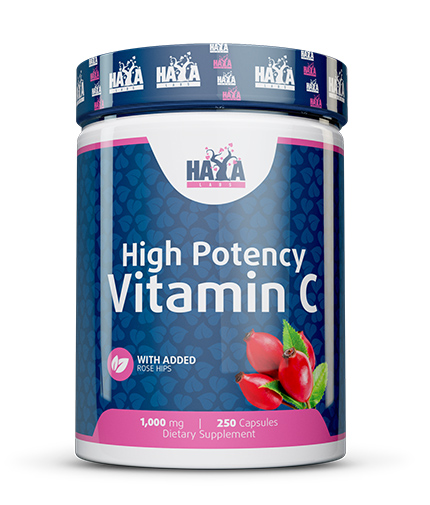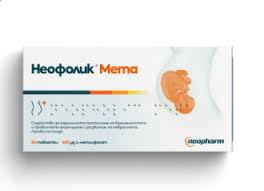KINON D3 x 30 tabl
QUINON D3 tablets * 30
Bone mineralization process
In the human body, all organs and systems are closely interconnected. The normal functioning of one system affects the proper functioning of other systems. In the human body, production and degradation processes are constantly taking place, the balance between which is of particular importance in the formation and maintenance of normal bone tissue. .
Bone tissue is composed of bone cells and a hard intercellular substance (matrix) mineralized with calcium phosphate and calcium carbonate, which give bones their strength. Bone cells, called osteoclasts, break down old and damaged bone tissue. Another type of cell, osteoblasts, produces and form new bone tissue. Bone growth and mineralization are most intense during childhood and adolescence. Maximum bone weight is reached around age 30. Later, bone weight decreases. In women, bone density loss is exacerbated by hormonal changes before and during menopause.
The precise balance between the process of osteoclast-initiated bone breakdown and osteoblast-initiated bone formation is very important for health. It can be disrupted not only by lack of calcium or hormonal imbalance, but also by deficiencies of specific vitamins and trace elements in the diet or due to their poor absorption. If this continues for a long time, the bones lose density and weight, become more fragile and often break even from minor trauma. This condition is called osteoporosis or the so-called "silent epidemic". It develops unnoticed and a person understands that there is this problem, only when a bone breaks. According to information from the International Osteoporosis Foundation, the disease develops in one in three women and one in five men over the age of 50. It is said that the possibility of developing of osteoporosis depends on the amount of minerals in the bones that accumulate at a younger age. For this reason, it is very important not only to get calcium from food, but also to have normal calcium metabolism in our body at any age.
Role of vitamin K in the mineralization process
Vitamin K plays an important role in the mineralization process, as it activates osteocalcin, released by osteoblasts, which is able to bind calcium and deposit it in the bones. If the protein is not activated properly, it does not bind calcium and the mineral remains as an excess in the blood. There are studies that show that vitamin K deficiency and excess calcium in the bloodstream can lead to the formation of calcium deposits on the walls of blood vessels, which contributes to their calcification.
Vitamin K Facts
The human body does not store vitamin K. Very small amounts can be found in the liver and bones. They are only enough for a few days.
Vitamin K may be deficient in the body in cases of abnormal absorption (especially with prolonged use of antibiotics and anticoagulants). In addition, the need for this vitamin to maintain bone health may be greater than the amount usually consumed with food.
Vitamin K comes in two forms: Vitamin K1 (phylloquinone), which is found in plants, and vitamin K2 (menaquinone), which is found in meats, egg yolks, and dairy products. The highest amount of vitamin K2 is found in a Japanese food product. from fermented soybeans. The vitamin is also synthesized by the body's intestinal microflora.
It is said that menaquinone-7 (the form of vitamin K2) remains in the blood serum longer than any other form of vitamin K. It is absorbed very well by the human body.
It has been proven that vitamin K is involved in the process of bone mineralization and is important for their normal condition, structure, construction and maintenance.
Vitamin K is involved in the activation of osteocalcin, which has the ability to bind calcium and is produced by osteoblasts, thus supporting the process of bone mineralization. In the absence of the vitamin, the calcium-binding protein becomes inactive, which disrupts the mineralization processes in bones. .
Studies have shown that a lack of vitamin K2 in the body or its poor absorption affects bone loss, increases the risk of osteoporosis and bone fragility. Therefore, it is important for the human body to receive sufficient amounts of it.
Vitamin K2 has been shown to be involved in the activation of matrix Gla protein (MGP), which inhibits calcium accumulation in the aorta and other blood vessels. Studies have shown that vitamin K2 deficiency can cause cardiovascular calcification.
A retrospective study conducted over 10 years involving 4,807 older adults (aged 55 and over) showed that higher vitamin K2 intake was associated with lower levels of aortic calcification and, accordingly, -low incidence of coronary heart disease.
Role of vitamin D in the mineralization process
Produced in the skin or ingested with food, vitamin D is transported via the lymphatic system into the venous circulation and can be stored and then released by fat cells. Vitamin D in the circulation is bound to vitamin-D-binding protein, which transports it to the liver. liver, where the vitamin is converted to 25-hydroxyvitamin D. This form is biologically inactive and must be converted in the kidneys to biologically active. Serum phosphorus, calcium, and fibroblast growth factors can increase or decrease the production of biologically active vitamin D, which improves calcium absorption in the small intestine by increasing the expression of epithelial calcium channels. Only 10% - 15% of dietary calcium and about 60% of phosphorus can be absorbed in the absence of vitamin D.
Biologically active vitamin D also helps induce the maturation of osteoclasts. Mature osteoclasts remove calcium and phosphorus from the bones, maintaining their levels in the blood. Adequate levels of both minerals promote skeletal mineralization.
Vitamin D facts
Vitamin D3 (cholecalciferol) is a fat-soluble vitamin. It can be obtained from foods of animal origin, but its amounts there are not large. Most vitamin D3 is found in oily fish (salmon, herring, eel), egg yolk, liver , butter and cheese.
Vitamin D3 can be synthesized in the deeper epidermal layers of human skin under the influence of ultraviolet (UV-B) solar radiation and heat. Vitamin D3 deficiency is not usually observed in people living near the equator, where there is no lack of sunlight throughout the year. year.
There are several reasons leading to vitamin D deficiency and insufficiency in adults: genetic factors, dietary habits, lack of sufficient sunlight or sun protection, and disorders of certain bodily functions. More vitamin D is needed in some liver and kidney diseases, as well as and decreased intestinal absorption, especially in older patients. Obesity is also thought to reduce the available amounts of vitamin D, as it is sequestered in body fat.
Based on the evaluation of the latest scientific evidence on the skeletal and non-skeletal effects of vitamin D, the practical guide to vitamin D supplementation in the Central European population recommends a daily intake for adults of 800 - 2000 IU (20 - 50 μg). Supplementation is recommended throughout the year. if vitamin synthesis is not guaranteed in the summer, especially in elderly people.
Severe and prolonged overdose of vitamin D can be dangerous. Therefore, experts from the European Food Safety Authority (EFSA) have assessed the safety of using the vitamin. They believe that a dose of 4000 IU (100 μg) can be used without any problems. daily by adults, the elderly, and children over 11 years of age. For obese adults and the elderly, the highest average daily intake of vitamin D that does not carry a risk of adverse effects is 10,000 IU. (1250 μg).
Adequate vitamin D intake is necessary to achieve the amount sufficient for normal bone and tooth mineralization throughout childhood and adolescence and for bone maintenance in adults and elderly patients. Low levels of the vitamin lead to reduced bone mineral accumulation. in children and adolescents, accelerates the loss of bone density and increases the risk of developing osteoporosis.
The main physiological function of vitamin D is to maintain serum calcium and phosphorus concentrations within the range necessary for cellular processes, neuromuscular function, and bone mineralization. The vitamin accomplishes these functions by increasing the efficiency of the small intestine to absorb calcium and phosphorus from the food and by mobilizing the two minerals from the bones.
Vitamin D has been shown to contribute to the maintenance of normal muscle function. Muscle weakness is associated with vitamin D deficiency syndrome. Clinical symptoms of vitamin D deficiency-induced myopathy include muscle weakness, diffuse muscle pain, and gait impairment.
Vitamin D also affects immunity. It is involved in the normal functioning of the immune system and modulates the inflammatory response.
The importance of vitamins K and D is beyond doubt, but not all aspects of their action have been fully studied. Scientists continue to conduct studies in order to determine the full significance of these vitamins for the human body.
Quinone D3 is a nutritional supplement for bones. Vitamin K and vitamin D contribute to maintaining their normal condition.
Composition of 1 tablet:
Quinone (menaquinone-7 - vitamin K2 extracted from soybeans by fermentation) - 100 μg (133 of the RDI);
Vitamin D3 (cholecalciferol) - 10 μg (200% of the RDI).
*RDA - Recommended Daily Intake.
Method of use:
It is recommended that adults take 1 tablet per day with meals.
Do not exceed the recommended dose.
Food supplements should not be used as a substitute for a varied diet.
A balanced diet and a healthy lifestyle are very important.
Please consult your doctor before taking Quinone D3 if you are on oral anticoagulant treatment.
Storage conditions:
Store in a dry place, out of reach of children, at a temperature below 25°C.
Packaging: 30 tablets.
Manufacturer: Valentis AG, Switzerland.









